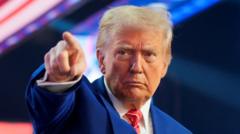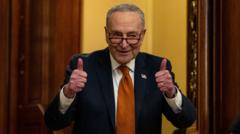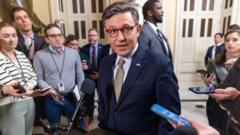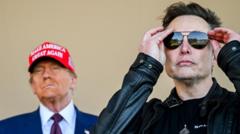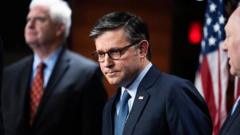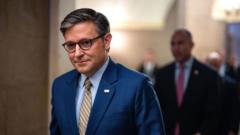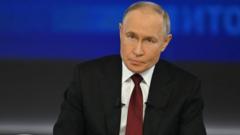As President-elect Donald Trump prepares to take office, the Biden administration is launching efforts to fortify U.S.-China dialogue to mitigate the risks of an economic downturn. Senior Treasury officials are set to discuss ongoing concerns ranging from green energy technology to export restrictions, while navigating a backdrop of intensifying protectionism.
Biden Administration Works to Strengthen U.S.-China Relations Ahead of Trump Era

Biden Administration Works to Strengthen U.S.-China Relations Ahead of Trump Era
Senior Treasury officials engage in crucial talks with Beijing to maintain communication amid potential economic challenges from the upcoming administration.
The Biden administration is actively seeking to solidify the communication pathways established with China as it braces for potential economic turbulence following President-elect Donald Trump's impending inauguration. This week, a delegation from the Treasury Department will visit Nanjing, China, for a critical round of discussions aimed at sustaining open dialogue between the two nations.
These meetings mark the culmination of ongoing efforts initiated in 2023, which included the creation of bilateral economic working groups designed to avert the escalation of tensions into full-blown economic conflict. A team of Treasury officials will also participate in discussions alongside a Group of 20 (G20) summit in South Africa to address joint economic concerns.
Topics of conversation are expected to mirror past engagements, centering on key issues such as China's overproduction of renewable energy technologies, the impacts of export restrictions on vital minerals, and the alleged technical support that Chinese businesses have extended to Russia amid its ongoing conflict in Ukraine.
Jay Shambaugh, Under Secretary for International Affairs at the Treasury Department, emphasizes the significance of direct communication between U.S. and Chinese officials: "The United States and China are the two largest economies on the globe, and the American people expect that we should be able to communicate directly on both areas where we agree and especially on areas where we don’t."
In spite of a growing diplomatic dialogue, substantial concerns from the U.S. regarding China's economic practices, including its influx of inexpensive solar panels and electric vehicles into international markets, remain largely unaddressed. The administration's observations about China's continuing support for Russia's military needs also echo unresolved anxieties.
Moreover, the Biden administration has decided to uphold tariffs imposed during Trump's presidency on a wide array of Chinese imports, newly extending these measures to include electric vehicles, solar cells, semiconductors, and advanced batteries. As both nations navigate complex economic landscapes, the outcome of these talks is poised to be instrumental in setting the stage for future U.S.-China relations.

